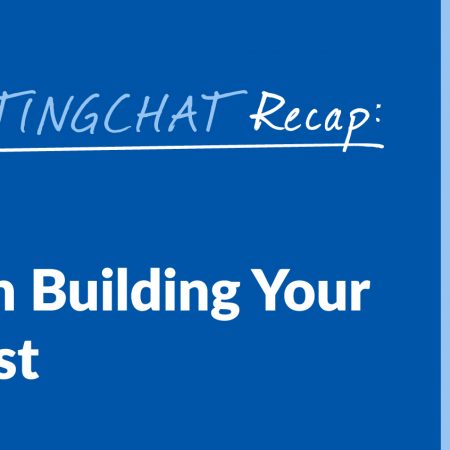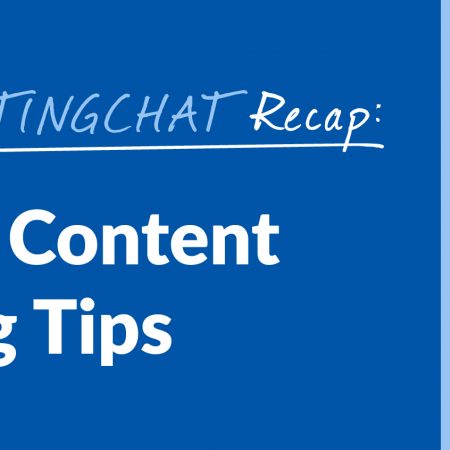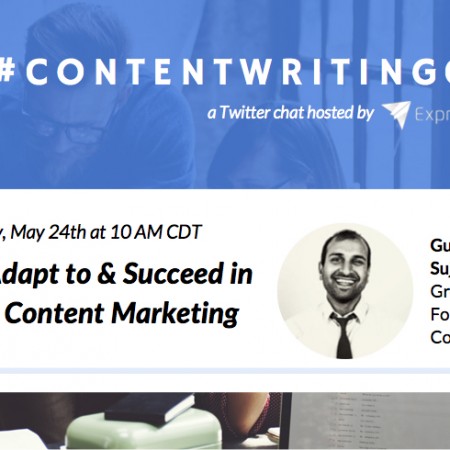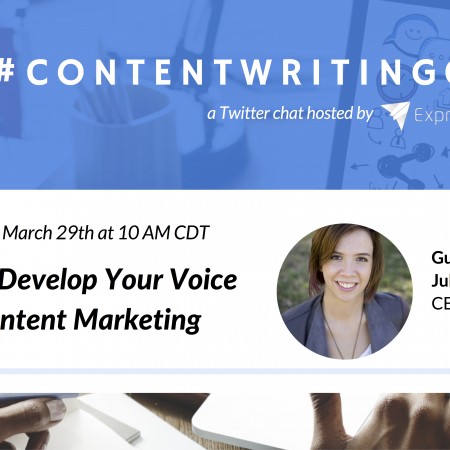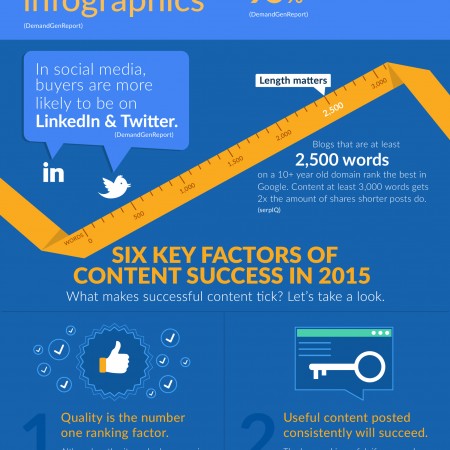#ContentWritingChat Recap: Content Inc.: Strategies on Building Your Audience First with Joe Pulizzi
Did you miss #ContentWritingChat this week? There’s no need to worry because we have a recap that’s jam-packed with amazing tips! Let’s dive right in! #ContentWritingChat Recap: Content Inc.: Strategies on Building Your Audience First with Joe Pulizzi Join us for #ContentWritingChat on Tuesday, October 4th at 10 AM CDT with @JoePulizzi from @CMIContent! pic.twitter.com/o3jsnoNbLg — Express Writers (@ExpWriters) September 27, 2016 Our guest host this week was none other than Joe Pulizzi! Joe is person who coined the term content marketing, and the founder of Content Marketing Institute. He’s also a speaker and an author on content marketing. He shared some amazing tips during our chat all about building your audience online. Q1: How can content help you build your online brand or presence? You probably hear others talk about the importance of content all the time, but how exactly does it help you build your brand? Let’s break it down: A1: Content for content’s sake won’t do anything for your brand. #contentwritingchat — Joe Pulizzi (@JoePulizzi) October 4, 2016 The first thing to keep in mind is this piece of advice Joe offered. Content for content’s sake won’t do anything for your brand. You shouldn’t just create because that’s what you’re supposed to do. The content you publish should add value and serve a purpose within your brand. Remember that! A1: Find a niche (however small) that you can be the leading resource/expert on the web (the smaller the better) #contentwritingchat — Joe Pulizzi (@JoePulizzi) October 4, 2016 A1: Actually, without relevant, consistent, targeted, differentiated content, not sure how you’d build an online brand #contentwritingchat — Joe Pulizzi (@JoePulizzi) October 4, 2016 Joe’s next piece of advice is to find a niche that you can be the leading resource/expert for. It’s important that you show your audience that you know your stuff to help build trust with them. A1: Content can help a brand or company stand out. It can also help you connect with your audience and build trust. #contentwritingchat — Netvantage Marketing (@netvantage) October 4, 2016 Content can be what helps your company stand out from the rest. It’s also a great way to connect with your audience and establish a level of trust with them. @writingchat A1 – Content lends to thought leadership as long as you are generating original, provoking words. #ContentWritingChat — globalHMA (@globalHMA) October 4, 2016 The content you create can lend itself to establishing you as a thought leader in your field. You just need to make sure you’re generating original and thought-provoking content. Great answer, Katie! A1: Content builds online presence via #SEO (answering user ?s)+builds trust during the sales cycle by illust expertise #ContentWritingChat — Maureen Jann (@MaureenOnPoint) October 4, 2016 As Maureen said, content can also help build your presence through SEO. Focus on answering the questions your audience has and providing value to them. It helps to build trust and shows your expertise. Q1: One benefit is the ability to grow interactive online relationships by sharing valuable insights with an audience #ContentWritingChat — Malayna (@Malayna) October 4, 2016 Malayna knows great content can help you grow relationships with your audience, which is crucial for your success. A1: It builds SEO, developing the framework for authority, expertise, and trustworthiness. All great for brand presence! #ContentWritingChat — Edanry Rivera (@Edanry) October 4, 2016 Edanry summed it all up with his answer. Content helps build SEO while developing a framework for authority, expertise, and trustworthiness. Q2: What do you need to know about your audience in order to create content they’ll love? Now that you know why great content is so important, you need to understand your audience in order to create content that appeals to them. Here’s what you need to know about your audience: A2: You need to know “what keeps my audience up at night?” – You know that, live that, you’ll be successful. #contentwritingchat — Joe Pulizzi (@JoePulizzi) October 4, 2016 A2: Where do they hang out on the web? Who do they trust? Who are your attention competitors? #contentwritingchat — Joe Pulizzi (@JoePulizzi) October 4, 2016 What keeps your audience up at night? Where do they hang out online? Who do they trust? Who are your attention competitors? Joe recommends answering these questions to get to know your audience even better. A2: To create relevant content you need to know your audience’s pain points. Your content should help #ContentWritingChat @writingchat — Marsha Druker (@MarshaDruker) October 4, 2016 A2 Understand what problems your audience has and you’ll be able to create content that they value. #contentwritingchat — Bill Skowronski (@BillSkowronski) October 4, 2016 Many people from Tuesday’s chat agreed on this one! You need to know the pain points of your audience. What problems do they have? Create content that solves those issues for them. A2: Know who they are, where they are and what they’re about. No strategy otherwise–only a hope and a prayer. #ContentWritingChat pic.twitter.com/qnZwx32nSv — Jeff Reno(e) (@Renoe) October 4, 2016 Jenn said you need to know who they are, where they are, and what they’re all about. Knowing your audience is really the foundation of creating content. a2: Know where your audience is, know who they are, tailor your content to the specific platforms &interests #contentwritingchat — Jessie Simms (@JSimmsSocial) October 4, 2016 Jessie said that once you know your audience and where they are, you can tailor your content to speak directly to them. A2 What’s their biggest need? Want? Find out, THEN create content that isn’t superficial but is their #1 in-depth answer #ContentWritingChat — Julia McCoy (@JuliaEMcCoy) October 4, 2016 Once you know what your audience wants, make sure you create top-notch content that provides them with the answers they’re looking for. Your audience expects the best and they deserve it. Q3: Which content formats should you create for your audience? There are a lot of content formats you can choose from, which can make it tricky to figure out which one you should pursue. To help, keep these tips … Read more
